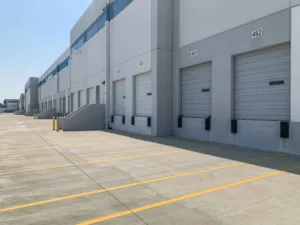
If you’re looking to get into self storage investing, you’re joining a fast-growing group of capital owners. It’s no wonder why: Self storage units are not only relatively affordable to buy but also offer high returns. Who wouldn’t want a piece of that pie?
But just like any other form of real estate investing, self storage has its risks. From regulatory issues and market volatility to tenant management and maintenance costs, there are many factors to consider before taking the plunge. That’s why it’s essential to do your due diligence before investing in self storage.
In this post, we’ll look at the common risks and challenges associated with self storage investing. We’ll explore how to navigate these potential pitfalls so that you can make the best decisions for yourself and your investments. So if you’re ready to learn more about the ins and outs of self storage investing, read on!
Common Regulatory Issues With Self Storage Investing
When you’re looking to invest in self storage units, one of the first things you should consider is the legal and regulatory issues associated with the investment. Self storage facilities are subject to a range of legal and regulatory issues such as zoning laws, building codes, and health and safety regulations. It’s important to be aware that a lengthy regulatory review process could keep self-storage proposals on ice for months or even years, reducing potential returns.
Other common regulatory issues include taxation, environmental regulations, labor laws, consumer protections, and anti-trust laws. It is also important to be aware of local building ordinances that may affect a particular investment opportunity. As always, it is best to consult with an experienced attorney before making any final decisions about investing in self storage units.
Mitigating Market Volatility Through Self Storage Investing
Self-storage investments have the potential to provide a steady stream of revenue without the same level of capital commitment as other types of real estate investments. This provides investors with an opportunity to shift risk away from long-term traditional real estate investments and make use of shorter-term leases.
In addition, the present market dynamics are highly favorable to self-storage investments. This is due to a large number of platforms and services that have been created in response to increased demand. These platforms make it easier for investors to identify opportunities and access capital.
The investment approach aims to mitigate downside risks in self-storage investing while taking advantage of the upsides. This includes careful analysis and management of tenant portfolios, use of cutting-edge technology such as analytics solutions, focus on improving customer service quality, and setting competitive prices.
Finally, tenants are highly adaptable to market changes, allowing investors to adjust rates based on their risk tolerance and needs. Therefore, core investors should seek a conservative risk and return profile with stabilized returns that offer long-term value in order to maximize return on investment (ROI).
Tenant Management Strategies for Self Storage Investors
Tenant management is essential for any successful self storage investment. When considering third-party property management, you’ll want to evaluate passion and expertise, as well as their commitment to helping you reach your goals. To make tenant management easier, consider offering insurance and optimizing rental rates. This way you can ensure that operations run smoothly with no surprises.
When it comes to leases, many facility owners prefer month-to-month agreements to take away long-term liabilities. You should also collect income from the sale of insurance to property tenants – this will reduce your own risk when it comes to damages or irregularities in rental payments.
When setting up your property organization and marketing plan, think carefully about your target market and ideal price range for rent payments. By considering these factors in your strategy, you will be more likely to secure a steady stream of tenants and be set up for long-term success as a self storage investor!
Analyzing the Potential Returns of Self Storage Investing
Self-storage investments may carry the potential for strong returns. And it’s true—self-storage property’s cash-on-cash return is 13.4%, which means that real estate investors may be able to make a good return on their investment.
However, before you jump right in, it’s important to understand that there are some key points to consider when analyzing potential returns in self storage investing.
Market volatility
It is important to be aware of the potential market volatility associated with self storage investments. Generally, with any type of real estate, there are always risks involved and that includes self storage investing as well. The demand for self storage units rises and falls depending on the location and how attractive the area is for tenants, including things like population density, job availability, and proximity to other facilities.
Management cost
Self-storage facilities are profitable thanks to low management costs—but that doesn’t necessarily mean that you won’t have to invest money or time in keeping your facility running smoothly and ensuring customer satisfaction. You’ll need to take into account the hours devoted to tenant management such as setting up contracts, collecting payments, making repairs, marketing the property, and more when analyzing your expected returns from an investment in self storage units.
Taxes
Another factor to consider when evaluating a potential return on your self storage investment is taxes—you will need to pay taxes just like any other type of real estate investment. Make sure you understand all of the relevant tax laws associated with your specific property before making an investment so you can better calculate your expected returns.
Finding Financing for a Self Storage Investment
When it comes to finding financing for a self-storage investment, there are a few options. For starters, you can get financing from the Small Business Administration (SBA). SBA loans are available for self-storage businesses and can be used to purchase, renovate, construct, or expand.
But if you’re looking to finance a property quickly, then you can consider a bridge or permanent financing option. Bridge loans are best for short-term investments—like when most properties require significant renovations. Permanent financing may be best if you plan to hold onto your investment long-term—that way, you won’t owe any money if you decide to sell the property in the future.
If you need assistance with self-storage financing, look no further than Live Oak Bank. They provide nationwide self-storage loan financing and investor targeted loans are best for self-storage projects where investors want steady rental income. Of course, like any loan process there are fees and other associated costs; so make sure to speak with a qualified professional before taking on any kind of loan.
Understanding Tax Implications of Self Storage Investing
Taxes are an important consideration when investing in self storage and understanding the tax implications can help you maximize your returns. From the outset, it’s important to note that the income from a self-storage facility is considered passive and is reported on Schedule E, and is not subject to self-employment tax. In addition, depreciation is a non-cash deduction that can be used to reduce taxable income.
Depreciation and Useful Period
Commercial real estate, including self-storage, has a useful period of 39 years for depreciation purposes. This means that each year you will be able to deduct a portion of the asset value based on its useful life. The value decreases over time, allowing you to spread out your deductions over the entire investment span.
Tax Benefits
In addition to depreciation benefits, there are other tax benefits associated with self-storage investments such as deductions for property tax, interest expense, and insurance premiums. If you’re looking for additional strategies for reducing your taxable income from self storage investments, talk to a certified public accountant that specializes in real estate deductions.
Conclusion
Investing in self-storage is highly lucrative and, when done correctly, can provide steady returns on investment. But as with any kind of real estate investing, there are certain risks and challenges associated with self-storage investments. It’s important to understand the nuances of the industry, the types of risks involved, and how to manage tenant relationships effectively.
By taking the time to understand the risks associated with self-storage investments, capital owners can make sound decisions that can provide long-term success in this ever-growing industry. Armed with knowledge on the types of risks and how to mitigate them, investors can confidently navigate the complex but rewarding world of self-storage investing.





